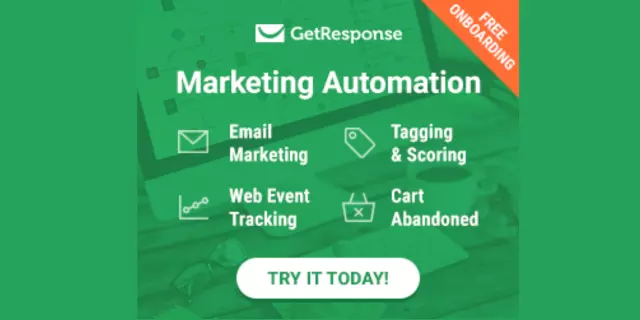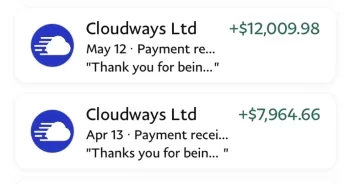Affiliates marketing really making easy money? What’s the trick to making an affiliate marketing program work for you?
Every day you hear success stories about affiliate marketers making four and five figures monthly while working from the comfort of their homes.
While some of those stories are likely exaggerated, affiliate marketing is one of the best ways to make money online and generate passive income.
Sure, it’s not “easy money,” but it’s an easy way to make some extra money if you’re willing to put in a little hustle and find an approach that works for you.
Since you’re here, you might be wondering how affiliate marketing works and how you can successfully generate commissions and run a business.
Rest assured, in this affiliate marketing for beginners guide, you’ll get answers to the most common questions that new affiliate marketers ask. Later, we’ll highlight eleven proven affiliate program strategies to achieve success.
Contents
Specifically, we’ll look into:
What is affiliate marketing?
Affiliate marketing is a type of performance-based marketing where a company (a.k.a. advertiser or merchant) pays a third-party (affiliate or publisher) a commission for marketing its products or services. For example, a travel blogger promotes popular hotel websites and earns commissions for bookings on the advertiser’s site.
Affiliates typically include content creators, bloggers, YouTubers, as well as social media and email marketers.
Affiliate marketing is a billion-dollar industry and one marketing strategy merchants use to increase their revenues. Companies like the affiliate marketing model because they only pay for performance via leads and sales.
Case in point: Adidas, Amazon, Apple, eBay, Microsoft, Priceline, Samsung, Shopify, and thousands more have affiliate programs.
GetResponse has two high-paying affiliate programs that offer recurring and one-time payments, which we’ll review later.
How does affiliate marketing work?
- A merchant creates a program and uses in-house or commercial affiliate marketing tracking software to generate links for affiliates, monitor performance, tracks sales, and process payments. The merchant may manage its affiliate program with staff in-house or outsource responsibilities to an agency or network.
- Affiliates join the merchant’s program and market its products with unique links assigned to them. For instance, Jane’s GetResponse affiliate link is getresponse.com/?a=dhz74h1kd.
- Affiliates share and post links on their websites, blogs, YouTube channels, social media profiles, etc.
- Affiliate marketing software tracks clicks, impressions, conversions, sales, and other data for each affiliate. Merchants and affiliates can monitor their performance.
- Commissions are sent to affiliates for sales, leads, or other cost-per-action (CPA) objectives (for example, app installs). Affiliates must abide by the merchant’s program policies to remain in good standing and receive commissions.
Advantages of being an affiliate marketer
- An affiliate marketing business is a low-cost and low-risk venture that takes very little to start and maintain. Bloggers can use content management software (CMS) from WordPress and pay less than $10 monthly for hosting. Social media marketers can publish content on YouTube, Facebook, Twitter, LinkedIn, etc. Email marketers can access freemium plans from various providers, including GetResponse. You can use many marketing and business tools for free or pay a low cost (here’s a list of 20+ free marketing tools for affiliates). Therefore, it’s possible to operate your business for less than $10 to $50 monthly.
- Affiliate marketing doesn’t require you to purchase or store stock. Instead, merchants are responsible for carrying inventory, processing orders, and shipping.
- Merchants handle customer service, so affiliates don’t have to respond to or manage inquiries.
- Affiliate marketing isn’t complicated – it’s primarily about posting affiliate links. That’s it.
It’s easy to get started.
Join a few affiliate programs, create content, post links, and you’re on your way.
There’s a wide selection of merchants and niches.
- From food to travel to auto parts, thousands of companies have an affiliate program in more than 30 popular product and service categories. So, affiliate marketing has something for everybody

- You can earn high recurring and one-time payouts. It’s common to find merchants that pay 20 to 50 percent commissions on sales, depending on the industry. Case in point, GetResponse pays a 33 percent recurring commission for the life of the customer.
- You can earn passive income. Online marketing and ecommerce are 24/7 operations with sales happening around the clock. Therefore, it’s possible to make money while you’re sleeping or not working.
Your content and recommendations help people
Affiliate marketers relish the opportunity to guide and support purchase decisions with insightful and engaging blogs, videos, and social media posts.
You can develop many in-demand skills
Most affiliates use multiple marketing strategies to generate commissions, including content marketing, social media marketing, email marketing, copywriting, SEO, paid marketing, and video marketing. Website development, graphic design, and video production skills may also be necessary.
- You don’t need to make sales calls. Selling products and services isn’t for everyone. By contrast, affiliate marketing allows you to focus on marketing, while merchants focus on converting traffic and sales.
- You can work part- or full-time. Some affiliates make full-time incomes while others do it as a side hustle to make extra money. The choice is yours.
- You can work alone or build a team. Many affiliates go it alone but can expand to include more members. For example, a YouTuber can focus on recording videos and hire an editor for video production.
- Affiliate program terms, conditions, and policies are straightforward. Programs have practical rules for affiliates to follow. For example, marketers cannot use domains containing the merchant’s name.
While being an affiliate marketer has many advantages, we shouldn’t overlook the disadvantages.






















